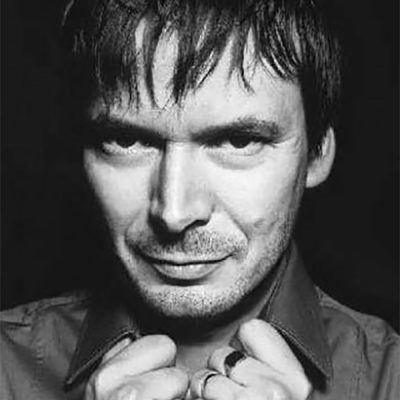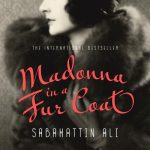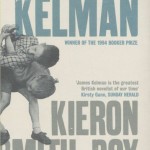The rise of tartan noir was a key part of Glasgow’s cultural revival. But Scottish crime writing betrays a fatal smugness, says Kenneth Wright
Support independent, non-corporate media.
Donate here!

I know the city like a lover
Once you’re there it’s hard to love another
This is no mean town
No mean citteh!
It’s the only place I’d be willing to die for
It’s the only place I’ve ever seen
This town is so me-ee-ean…
It’s all there, really, sung in an eldritch whisky gargle by Maggie Bell – herself a big part of the mythology of the echt authentic Glasgow – the signature song of Taggart could stand as the manifesto of Scottish noir: Ugly and Proud of it.
It’s no coincidence that the show began in the early eighties, when Glasgow was just beginning its day in the cultural sun. A city suddenly endowed with its very own artists and writers and pop groups needed a moody flipside to its image to give its emergent bohemian café society identity uptown/downtown edge, relishing the contrasts of Merchant City warehouse conversions next door to East End Dennistoun scumlands, the Citizens Theatre surrounded by the Gorbals of the original No Mean City.
Rising 30 years ago, Scottish noir, like the whole cool-Caledonia trend (the films of Bill Forsyth, the music of Lloyd Cole and the Blue Nile, the books of Alasdair Gray, the cult of Charles Rennie Mackintosh) it was part of, was a genuine thrill, if only of novelty. A country labouring under an eternal cultural cringe was suddenly no longer invisible. Like Londoners or New Yorkers, we could recognise our own streets in works of fiction. When Glasgow went to the movies (Edinburgh would have to wait for Shallow Grave and Trainspotting) to see Forsyth’s noir-lite Comfort and Joy or Charlie Gormley’s Just Another Miracle – the two films most deliriously in love with the melancholy beauty of lonely headlights moving through the rain – the stalls sizzled with the susurrus not of sweetie papers but people whispering “that’s where we live.” Lord Almighty, we were real at last.
It’s impossible – let me say for the benefit of Product readers under 30 – to exaggerate the excitement of those days. Before Taggart I can’t remember a single networked TV drama series with a contemporary urban Scottish setting since The View from Daniel Pike (Roddy McMillan as a low-rent private eye), although the BBC would occasionally commission Peter McDougall – the Norman Mailer of Scottish TV drama, the original tough guy who doesn’t dance – to shock the socks off English viewers with grim, one-off kitchen-sinkers like Just Another Saturday. As for novels about city life, it sometimes seemed as though the country had broken its pencil and lost the sharpener.
Then along came a streetwise, working class, tough-and-tender Glasgow police detective called Jack Laidlaw. In two novels by William McIlvaney, Laidlaw (1977) and The Papers of Tony Veitch (1983), he defined the Scottish-noir hero as we know and love him today in the novels of Ian Rankin and Christopher Brookmyre: fond of drink, not much cop in the family stakes, comfortable in low company, suspicious of respectability, given to the laboriously honed wisecrack. He kept a cache of Camus in his desk and brooded on the suicide avenues of West End bedsitland and the fur-coat-nae-knickers sins of the bourgeoisie. McIlvaney, formerly a creator of wanly sensitive Scottish literary novels like A Gift from Nessus, imbued the books with mean-streets literary romanticism and craggy, windswept lines like the priceless first words of the second book: ‘It was Glasgow on a Friday night, the city of the stare.’
In discussing Laidlaw novels I don’t want to sound superior: I too was given to romancing the mean streets in those days, and wrote an abortive novel that could most kindly be described as a homage to McIlvaney’s books (alternatively, a rip-off), full of gutter lyricism and near-Stalinist idealisation of the plain people of Glasgow. I drank in sawdust pubs in Maryhill and Dennistoun and the locals, with amazing forebearance, let me live. However – and this isn’t their fault, they just came along at the right time – they epitomise an outlook that I believe is ruining the Scottish novel and helping to lock Scotland’s culture into a sour, adolescent chippiness, a defensive self-idealisation that is the practical opposite of decent self-respect.
The popularity and critical acclaim of Rankin’s and Brookmyre’s novels in Scotland (to English readers and critics one assumes they must possess the thrill of the exotic) is in itself a dubious sign. Leaving aside the question of ideology and taking them simply as genre thrillers a notch or two above the strictly functional, they are not exceptionally thrilling, no more than competently written and averagely (ie not very well) constructed. There are dozens of English practitioners (eg Mark Timlin, Maxim Jakubowski) producing equally workmanlike crime novels to modest sales and the kinds of reviews, headed ‘Crime Corner’, that come in bundles of six to the column. But Rankin and Bookmyre are Scottish, writing about Scotland (though Brookmyre has recently widened his horizons to Los Angeles), and Scotland, which 30 years ago assumed that all good books came from England and America, nowadays thinks all its geese are swans.
Perhaps it’s unfair to scourge writers for the taste by which they are appreciated, but I’m interested in them more as aspects of a cultural malaise than as writers, period. So I don’t enjoy their books? Big deal. Still, there are obvious criticisms to be levelled in purely novelistic terms, though I’ve room here only for the biggest. Both writers employ unattractive protagonists, though Rankin less obviously so: Detective Inspector Rebus (meaning a puzzle; oh, isn’t he just, though) of the Lothian and Borders Police is essentially moody alky of the Chandler/Hammett school, but prone to a moral pretentiousness that you don’t find in Philip Marlow or Sam Spade, or even Jack Laidlaw. Like a lot of people who fuck up their own lives, Rebus allows himself the prissy consolation of superior insight. His moral judgements are straight out of Holden Caulfield in The Catcher in the Rye: people who don’t share his chilly personal authenticity, especially his colleagues, are phoneys and fakes – which ties in with the easy cliché of the secret guilts behind the New Town’s Georgian windows. You have to sympathise with his wife, Patience, for not living up to her name.
But at least one can imagine having a drink with Rebus, in the right (moody) kind of mood. Whereas Brookmyre’s hero, the ridiculously-named reporter Jack Parlabene, is a face you’d never tire of kicking: gallus, bumptious, smart-alecky, hail-fellow-well-met. Rebus prides himself too much on his soul; Parlabene doesn’t have one.
This and the rest wouldn’t matter, though, if the leading writers of Scottish noir weren’t so perfectly representative of the smugness and complacency of Scotland’s latter-day idea of itself. In the novels of Rankin and Brookmyre, as much as in the scruff-worship of (most of) the Rebel Inc school, or the sub-nationalistic populism of the Daily Record, you find a certainty – by no means unspoken – that integrity, egalitarianism, socialism, democracy and unpretentiousness are flowers that bloom only north of the Cheviot, and in the dirtiest dirt at that. We may be ignorant and impoverished and lumpen, but by God we’re real. Our towns are so mean.









